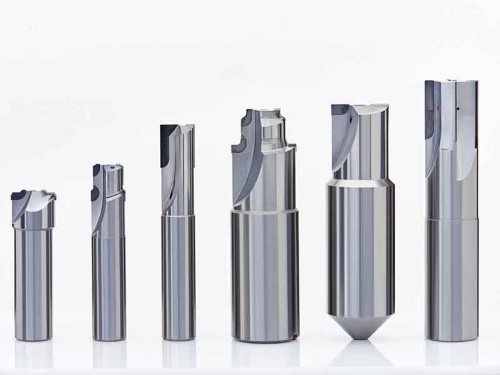Things To Know When Selecting End Mills

When selecting end mills one should pay attention to the various features and
characteristics. It is important to choose one that is suited to the kind of
material to be cut. Take into consideration the length, geometry, and number of
flutes. A quality mill can dramatically reduce the amount of time needed to
perform an operation.
TiAlN coatings improve the efficiency of end mills
TiAlN coatings do not just improve the strength and rigidity of mills but
also increase the wear resistance of their mills. This speeds up milling. The
coatings protect against cracks as well as oxidation.
End mills' geometry and geometries
End mills are cylindrical machines that have numerous cutting edges. They can
be used for various applications, including side milling, slotting shoulder
milling, as well as profile and contour milling. The geometry of an end mill is
determined by the number of cutting edges it has as well as the flute shape. The
cutting edge is typically circular. The mathematical model that calculates
cutting force is based on the Oxley prediction machine theory.
Flutes
One of the most vital things to know when selecting pcd ball nose end mills
is the material they're constructed from. Every material is different and
requires a distinct machining strategy. For instance, aluminum needs different
tools as opposed to non-ferrous material. Another consideration is the number of
flutes a tool can have. If you really want to discover extra information about
mill end bits, you must browse around www.sundicuttingtools.com
site.
Length of cut
It is important to consider how deep the cut will be when choosing the end
mill. The smaller the end mill, the deeper the cut can be. The end mills are
best for finishing jobs within pockets and slots. However, the longer length end
mills work better for cutting seamless walls.
Carbide vs. HSS
A carbide or HSS mill might be the best choice based on the material you're
cutting and the speed of spindle that you can achieve with your machine. Before
making the choice, you must know the basic structure of both kinds of end mills.
If you know these fundamentals, you'll be able to choose the best one for your
needs.
All directions are cut
End mills are used in numerous ways and are available in a variety of sizes. They can be used for general machining as well as specialty applications. You should consult the helical end mills guide for selection to choose the appropriate one for your needs. This guide provides information about application and cutting performance such as feed speed HEM slotting, feed speeds. You will find information about cutting angles as well as straight line ramping. You should also consider the following important aspects when choosing an end mill: chip load per tooth; feed per revolution; and surface finishing.
Коментарі
Дописати коментар